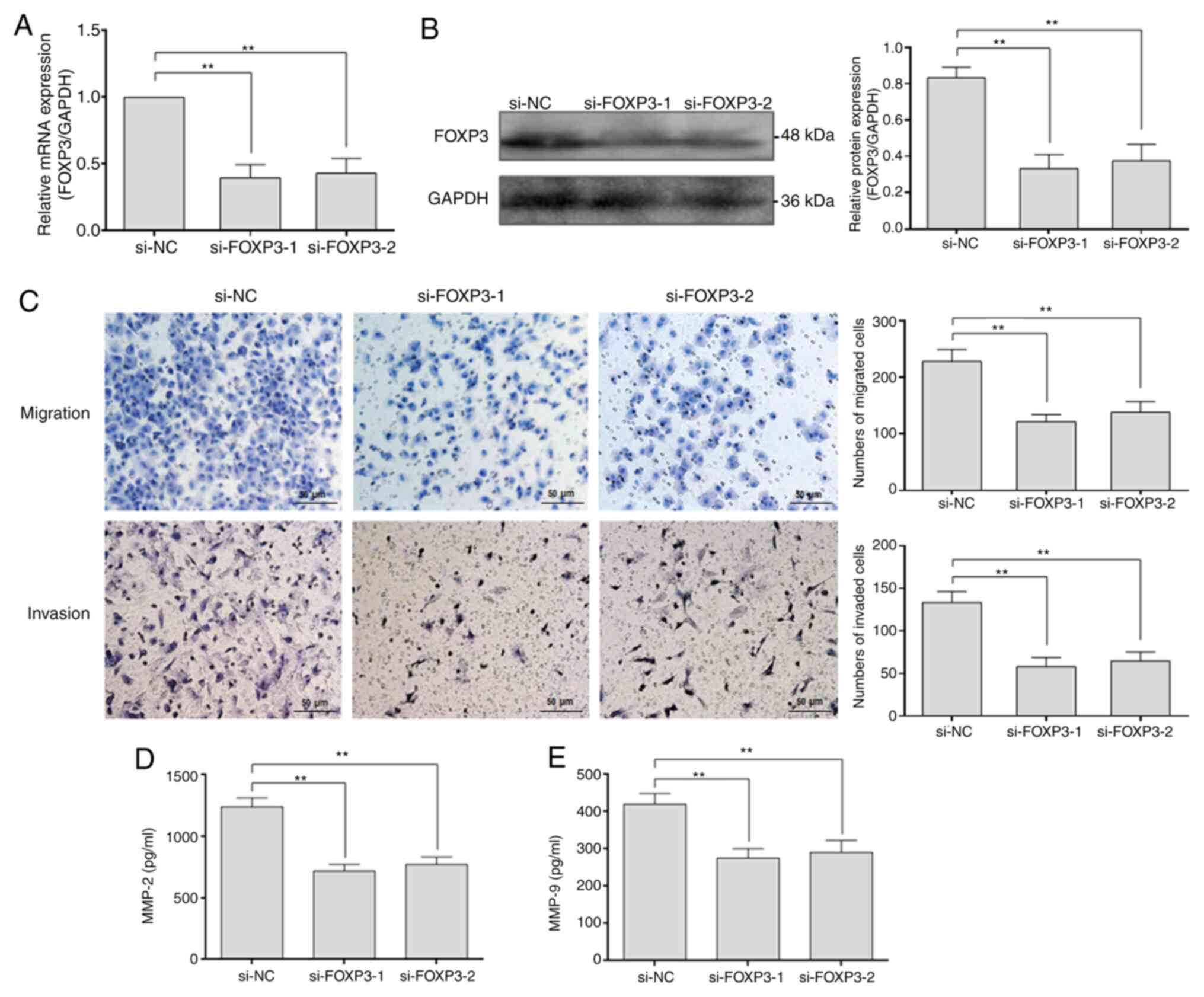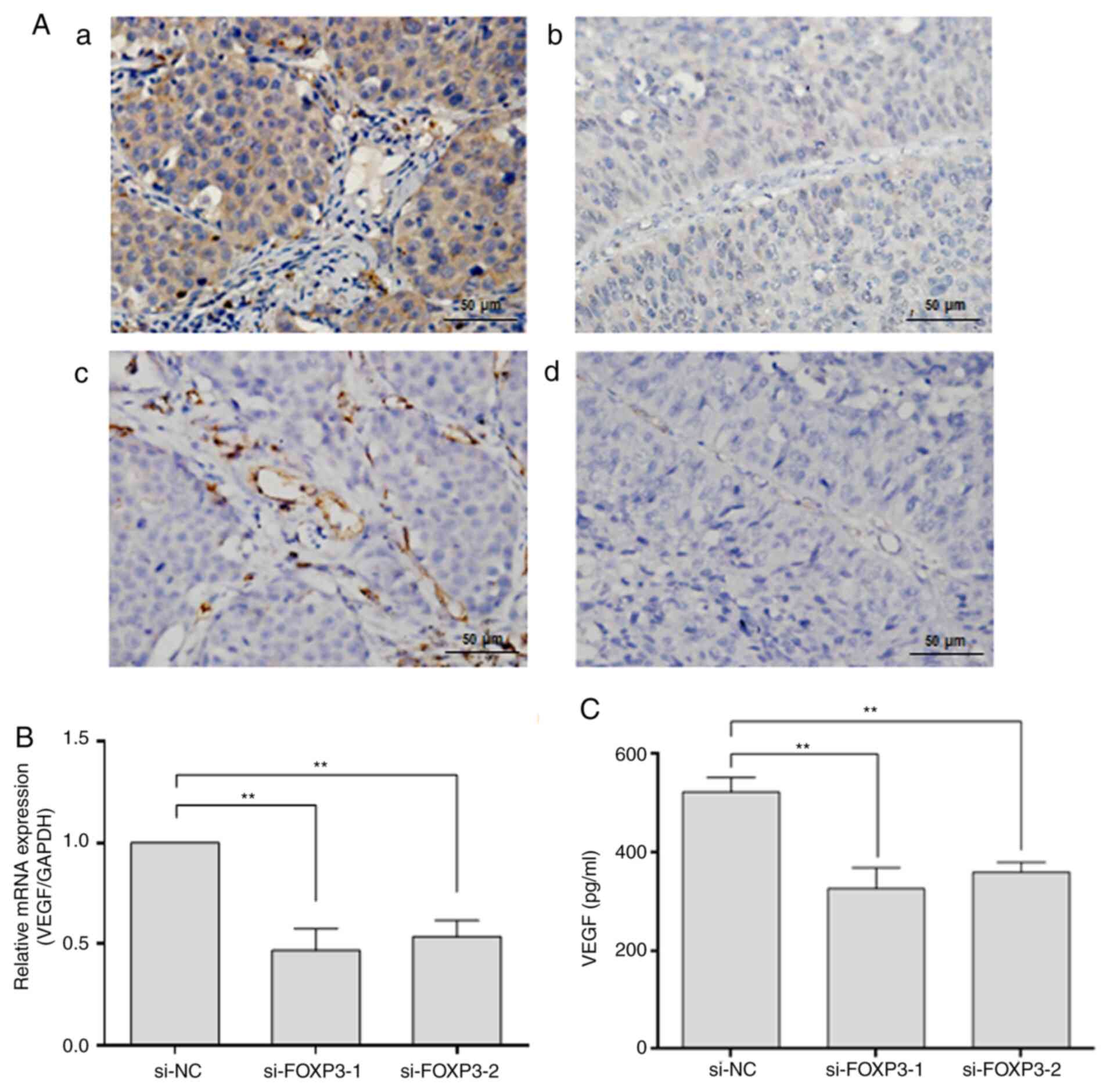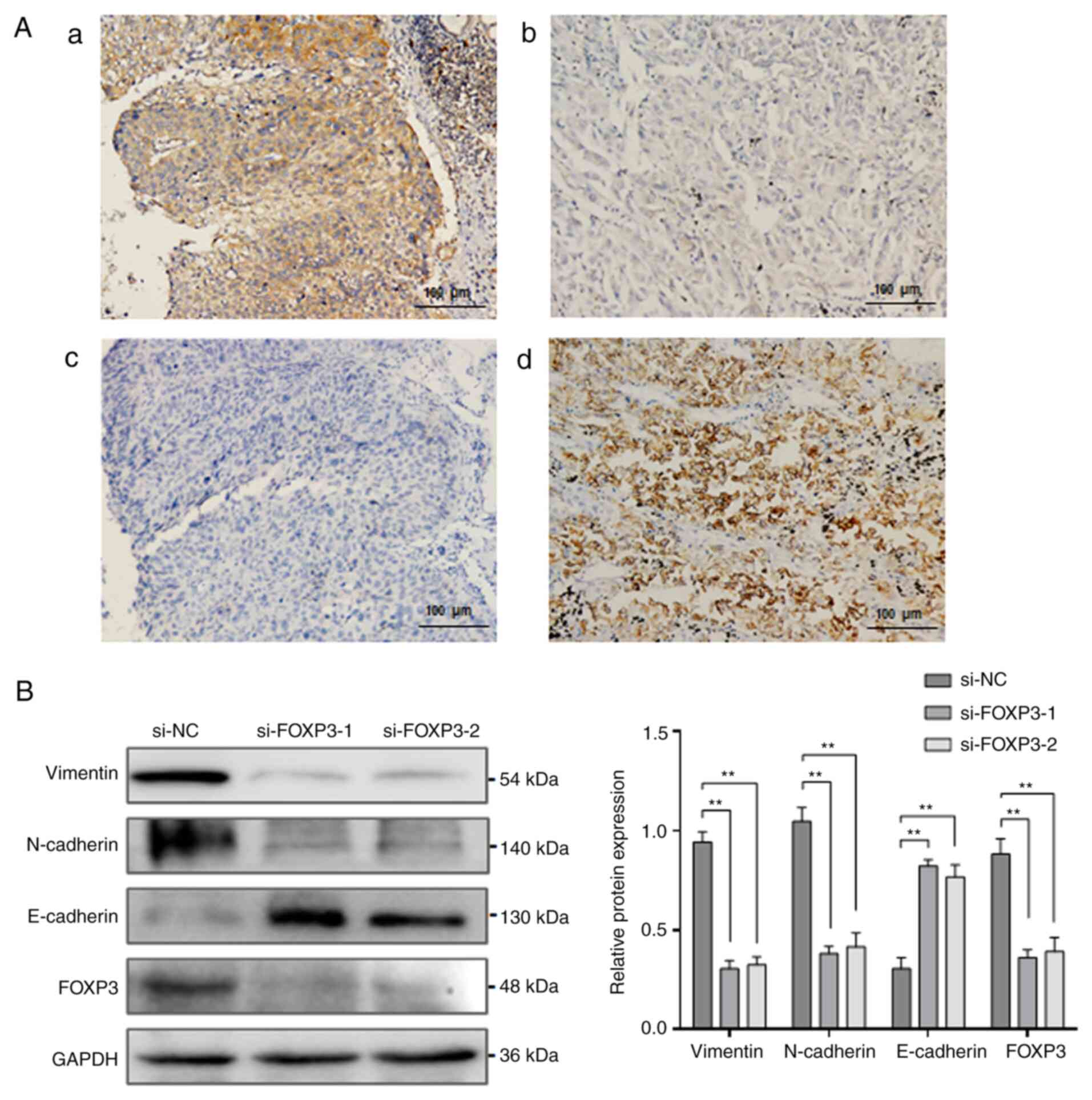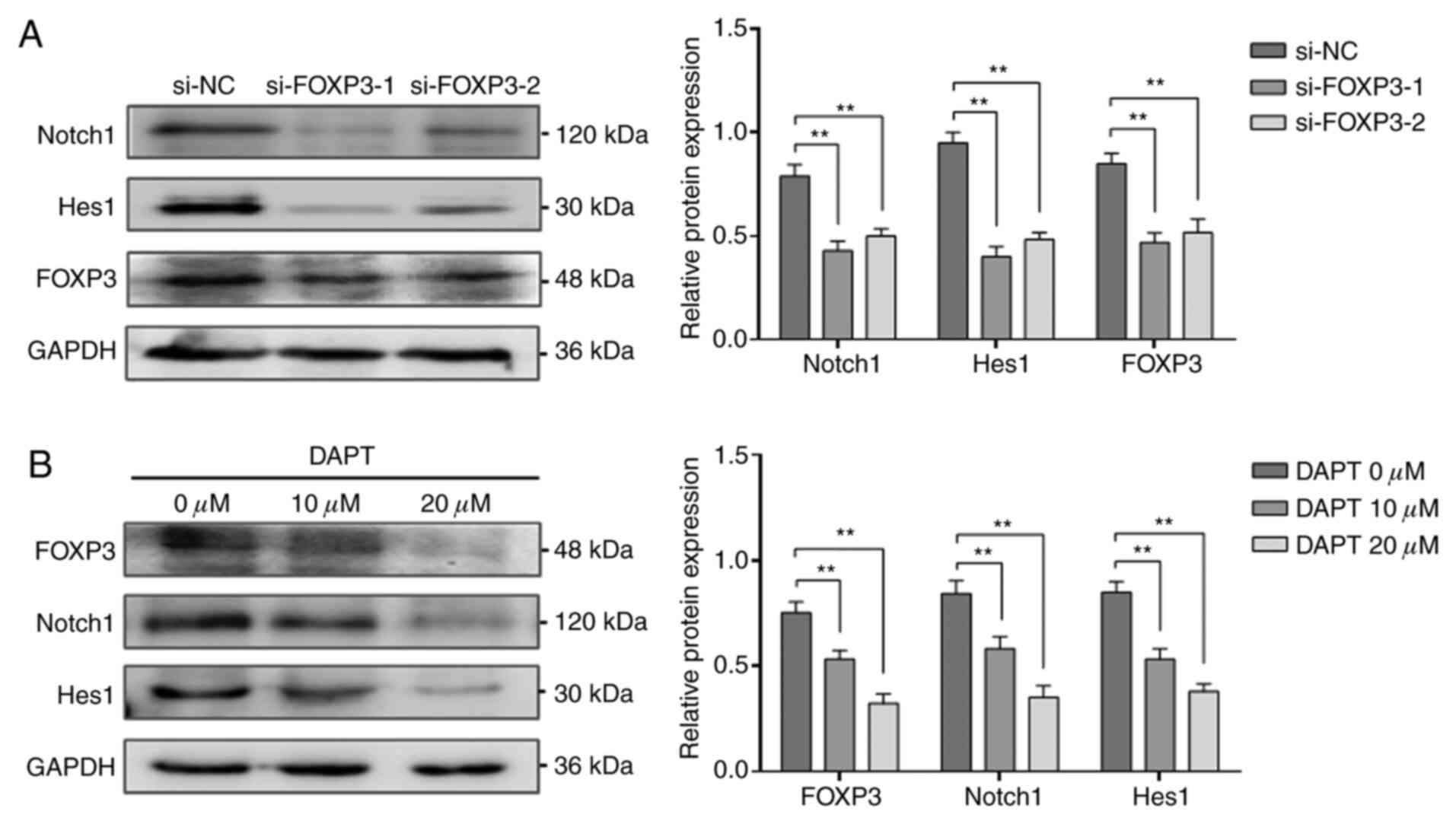|
1
|
Torre LA, Siegel RL and Jemal A: Lung
cancer statistics. Adv Exp Med Biol. 893:1–19. 2016.PubMed/NCBI View Article : Google Scholar
|
|
2
|
Hirsch FR, Scagliotti GV, Mulshine JL,
Kwon R, Curran WJ Jr, Wu YL and Paz-Ares L: Lung cancer: Current
therapies and new targeted treatments. Lancet. 389:299–311.
2017.PubMed/NCBI View Article : Google Scholar
|
|
3
|
Ferlay J, Soerjomataram I, Dikshit R, Eser
S, Mathers C, Rebelo M, Parkin DM, Forman D and Bray F: Cancer
incidence and mortality worldwide: Sources, methods and major
patterns in GLOBOCAN 2012. Int J Cancer. 136:E359–E386.
2015.PubMed/NCBI View Article : Google Scholar
|
|
4
|
Souza MC, Cruz OG and Vasconcelos AG:
Factors Associated with disease-specific survival of patients with
non-small cell lung cancer. J Bras Pneumol. 42:317–325.
2016.PubMed/NCBI View Article : Google Scholar : (In English,
Portuguese).
|
|
5
|
Zinner R, Visseren-Grul C, Spigel DR and
Obasaju C: Pemetrexed clinical studies in performance status 2
patients with non-small cell lung cancer (Review). Int J Oncol.
48:13–27. 2016.PubMed/NCBI View Article : Google Scholar
|
|
6
|
Togashi Y, Shitara K and Nishikawa H:
Regulatory T cells in cancer immunosuppression-implications for
anticancer therapy. Nat Rev Clin Oncol. 16:356–371. 2019.PubMed/NCBI View Article : Google Scholar
|
|
7
|
Triulzi T, Tagliabue E, Balsari A and
Casalini P: FOXP3 expression in tumor cells and implications for
cancer progression. J Cell Physiol. 228:30–35. 2013.PubMed/NCBI View Article : Google Scholar
|
|
8
|
Hinz S, Pagerols-Raluy L, Oberg HH,
Ammerpohl O, Grüssel S, Sipos B, Grützmann R, Pilarsky C,
Ungefroren H, Saeger HD, et al: Foxp3 expression in pancreatic
carcinoma cells as a noveral mechanism of immune evasion in cancer.
Cancer Res. 67:8344–8350. 2007.PubMed/NCBI View Article : Google Scholar
|
|
9
|
Kim M, Grimmig T, Grimm M, Lazariotou M,
Meier E, Rosenwald A, Tsaur I, Blaheta R, Heemann U, Germer CT, et
al: Expression of Foxp3 in colorectal cancer but not in Treg cells
correlates with disease progression in patients with colorectal
cancer. PLoS One. 8(e53630)2013.PubMed/NCBI View Article : Google Scholar
|
|
10
|
Chu R, Liu SY, Vlantis AC, van Hasselt CA,
Ng EK, Fan MD, Ng SK, Chan AB, Du J, Wei W, et al: Inhibition of
Foxp3 in cancer cells induces apoptosis of thyroid cancer cells.
Mol Cell Endocrinol. 399:228–234. 2015.PubMed/NCBI View Article : Google Scholar
|
|
11
|
Zeng C, Yao Y, Jie W, Zhang M, Hu X, Zhao
Y, Wang S, Yin J and Song Y: Up-regulation of Foxp3 participates in
progression of cervical cancer. Cancer Immunol Immunother.
62:481–487. 2013.PubMed/NCBI View Article : Google Scholar
|
|
12
|
Zuo T, Wang L, Morrison C, Chang X, Zhang
H, Li W, Liu Y, Wang Y, Liu X, Chan MW, et al: FOXP3 is an X-linked
breast cancer suppressor gene and an important repressor of the
HER-2/ErbB2 oncogene. Cell. 129:1275–1286. 2007.PubMed/NCBI View Article : Google Scholar
|
|
13
|
Wang L, Liu R, Li W, Chen C, Katoh H, Chen
GY, McNally B, Lin L, Zhou P, Zuo T, et al: Somatic single hits
inactivate the X-linked tumor suppressor FOXP3 in the prostate.
Cancer Cell. 16:336–346. 2009.PubMed/NCBI View Article : Google Scholar
|
|
14
|
Zhang HY and Sun H: Up-regulation of Foxp3
inhibits cell proliferation, migration and invasion in epithelial
ovarian cancer. Cancer Lett. 287:91–97. 2010.PubMed/NCBI View Article : Google Scholar
|
|
15
|
Luo X, Tan H, Zhou Y, Xiao T, Wang C and
Li Y: Notch1 signaling is involved in regulating Foxp3 expression
in T-ALL. Cancer Cell Int. 13(34)2013.PubMed/NCBI View Article : Google Scholar
|
|
16
|
Fu HY, Li C, Yang W, Gai XD, Jia T, Lei YM
and Li Y: FOXP3 and TLR4 protein expression are correlated in
non-small cell lung cancer: Implications for tumor progression and
escape. Acta Histochem. 115:151–157. 2013.PubMed/NCBI View Article : Google Scholar
|
|
17
|
Li C, Sun L, Jiang R, Wang P, Xue H, Zhan
Y and Gai X: Downregulation of FOXP3 inhibits cell proliferation
and enhances chemosensitivity to cisplatin in human lung
adenocarcinoma. Pathol Res Pract. 213:1251–1256. 2017.PubMed/NCBI View Article : Google Scholar
|
|
18
|
Li C, Yang W, Gai X, Zhang Y, Li Y and Fu
H: Foxp3 overexpression decreases sensitivity to chemotherapy in
mouse Lewis lung cancer cells. Mol Med Rep. 6:977–982.
2012.PubMed/NCBI View Article : Google Scholar
|
|
19
|
Li Y, Li D, Yang W, Fu H, Liu Y and Li Y:
Overexpression of the transcription factor FOXP3 in lung
adenocarcinoma sustains malignant character by promoting G1/S
transition gene CCND1. Tumour Biol. 37:7395–7404. 2016.PubMed/NCBI View Article : Google Scholar
|
|
20
|
Yang S, Liu Y, Li MY, Ng CSH, Yang SL,
Wang S, Zou C, Dong Y, Du J, Long X, et al: FOXP3 promotes tumor
growth and metastasis by activating Wnt/β-catenin signaling pathway
and EMT in non-small cell lung cancer. Mol Cancer.
16(124)2017.PubMed/NCBI View Article : Google Scholar
|
|
21
|
Valastyan S and Weinberg RA: Tumor
metastasis: Molecular insights and evolving paradigms. Cell.
147:275–292. 2011.PubMed/NCBI View Article : Google Scholar
|
|
22
|
Takebe N, Miele L, Harris PJ, Jeong W,
Bando H, Kahn M, Yang SX and Ivy SP: Targeting notch Hedgehog, and
Wnt pathways in cancer stem cells: Clinical update. Nat Rev Clin
Oncol. 12:445–464. 2015.PubMed/NCBI View Article : Google Scholar
|
|
23
|
Yang Z, Qi Y, Lai N, Zhang J, Chen Z, Liu
M, Zhang W, Luo R and Kang S: Notch1 signaling in melanoma cells
promoted tumor-induced immunosuppression via upregulation of
TGF-β1. J Exp Clin Cancer Res. 37(1)2018.PubMed/NCBI View Article : Google Scholar
|
|
24
|
Teoh SL and Das S: Notch signalling
pathways and their importance in the treatment of cancers. Curr
Drug Targets. 19:128–143. 2018.PubMed/NCBI View Article : Google Scholar
|
|
25
|
Zou B, Zhou XL, Lai SQ and Liu JC: Notch
signaling and non-small cell lung cancer. Oncol Lett. 15:3415–3421.
2018.PubMed/NCBI View Article : Google Scholar
|
|
26
|
Yuan X, Wu H, Xu H, Han N, Chu Q, Yu S,
Chen Y and Wu K: Meta-analysis reveals the correlation of Notch
signaling with non-small cell lung cancer progression and
prognosis. Sci Rep. 5(10338)2015.PubMed/NCBI View Article : Google Scholar
|
|
27
|
Livak KJ and Schmittgen TD: Analysis of
relative gene expression data using real-time quantitative PCR and
the 2 (-Delta DeltaC (T)) method. Methods. 25:402–408.
2001.PubMed/NCBI View Article : Google Scholar
|
|
28
|
Li C, Ma X, Tan C, Fang H, Sun Y and Gai
X: IL-17F expression correlates with clinicopathologic factors and
biological markers in non-small cell lung cancer. Pathol Res Pract.
215(152562)2019.PubMed/NCBI View Article : Google Scholar
|
|
29
|
Tang YQ, Jaganath IB, Manikam R and
Sekaran SD: Phyllanthus spp. exerts anti-angiogenic and
anti-metastatic effects through inhibition on matrix
metalloproteinase enzymes. Nutr Cancer. 67:783–795. 2015.PubMed/NCBI View Article : Google Scholar
|
|
30
|
Pittayapruek P, Meephansan J, Prapapan O,
Komine M and Ohtsuki M: Role of matrix metalloproteinases in
photoaging and photocarcinogenesis. Int J Mol Sci.
17(868)2016.PubMed/NCBI View Article : Google Scholar
|
|
31
|
Zhao L, Niu H, Liu Y, Wang L, Zhang N,
Zhang G, Liu R and Han M: LOX inhibition downregulates MMP-2 and
MMP-9 in gastric cancer tissues and cells. J Cancer. 10:6481–6490.
2019.PubMed/NCBI View Article : Google Scholar
|
|
32
|
Giatromanolaki A, Lyberakidis G,
Lyratzopoulos N, Koukourakis MI, Sivridis E and Manolas C:
Angiogenesis and angiogenic factor expression in thyroid cancer. J
BUON. 15:357–361. 2010.PubMed/NCBI
|
|
33
|
Sadremomtaz A, Kobarfard F, Mansouri K,
Mirzanejad L and Asghari SM: Suppression of migratory and
metastatic pathways via blocking VEGFR1 and VEGFR2. J Recept Signal
Transduct Res. 38:432–441. 2018.PubMed/NCBI View Article : Google Scholar
|
|
34
|
Tang J, Yang Z, Wang Z, Li Z, Li H, Yin J,
Deng M, Zhu W and Zeng C: Foxp3 is correlated with VEGF-C
expression and lymphangiogenesis in cervical cancer. World J Surg
Oncol. 15(173)2017.PubMed/NCBI View Article : Google Scholar
|
|
35
|
Li X, Gao Y, Li J, Zhang K, Han J, Li W,
Hao Q, Zhang W, Wang S, Zeng C, et al: FOXP3 inhibits angiogenesis
by downregulating VEGF in breast cancer. Cell Death Dis.
9(744)2018.PubMed/NCBI View Article : Google Scholar
|
|
36
|
Tsubakihara Y and Moustakas A:
Epithelial-mesenchymal transition and metastasis under the control
of transforming growth factor beta. Int J Mol Sci.
19(3672)2018.PubMed/NCBI View Article : Google Scholar
|
|
37
|
Li P, Sun T, Yuan Q, Pan G, Zhang J and
Sun D: The expressions of NEDD9 and E-cadherin correlate with
metastasis and poor prognosis in triple-negative breast cancer
patients. Onco Targets Ther. 9:5751–5759. 2016.PubMed/NCBI View Article : Google Scholar
|
|
38
|
He X, Chen Z, Jia M and Zhao X:
Downregulated E-cadherin expression indicates worse prognosis in
Asian patients with colorectal cancer: Evidence from meta-analysis.
PLoS One. 8(e70858)2013.PubMed/NCBI View Article : Google Scholar
|
|
39
|
Ancel J, Dewolf M, Deslée G, Nawrocky-Raby
B, Dalstein V, Gilles C and Polette M: Clinical impact of the
epithelial-mesenchymal transition in lung cancer as a biomarker
assisting in therapeutic decisions. Cells Tissues Organs. 1–19.
2020.PubMed/NCBI View Article : Google Scholar : (Epub ahead of
print).
|
|
40
|
Yang MH, Zang YS, Huang H, Chen K, Li B,
Sun GY and Zhao XW: Arsenic trioxide exerts anti-lung cancer
activity by inhibiting angiogenesis. Curr Cancer Drug Targets.
14:557–566. 2014.PubMed/NCBI View Article : Google Scholar
|
|
41
|
Gao YP, Li Y, Li HJ and Zhao B: LncRNA
NBR2 inhibits EMT progression by regulating Notch1 pathway in
NSCLC. Eur Rev Med Pharmacol Sci. 23:7950–7958. 2019.PubMed/NCBI View Article : Google Scholar
|
|
42
|
Skarmoutsou E, Bevelacqua V, D' Amico F,
Russo A, Spandidos DA, Scalisi A, Malaponte G and Guarneri C: FOXP3
expression is modulated by TGF-β1/NOTCH1 pathway in human melanoma.
Int J Mol Med. 42:392–404. 2018.PubMed/NCBI View Article : Google Scholar
|


















